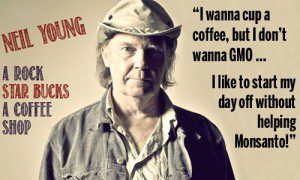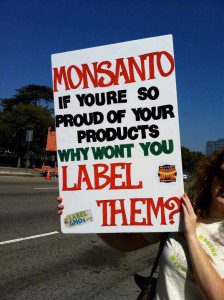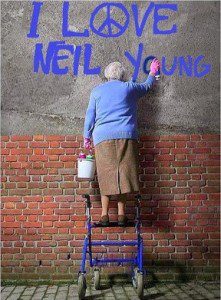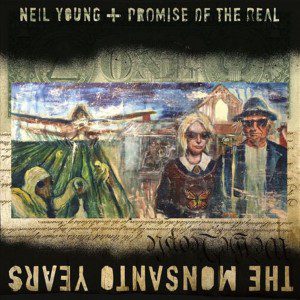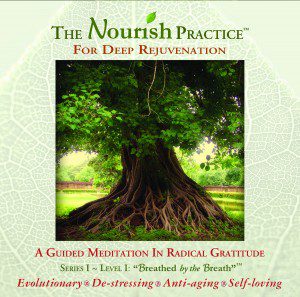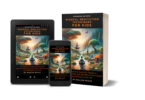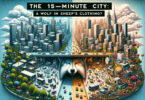By Jack Adam Weber L.Ac., Dipl. C.H.
Contributing Writer for Wake Up World
Hats off to Neil Young for (once again) speaking the truth and going out on a limb. I guess when you’re his age and gained your fame, it’s easier. Except that Neil Young has always been a warrior for justice, bold art, and meaning. His latest album, “The Monsanto Years” says it how it is. But, unlike most music on the market these days, the lyrics go deeper, as deep as the music itself.
This album is an educational piece and well worth the listen. It’ll hopefully get lots of people more interested in this toxic, farcical industry, those who otherwise wouldn’t learn about GMOs, Big Agriculture, and other crimes against the Earth and Humanity. At the end of this article I quote each song and share a bit about the message of each track.
The promotional tour will be especially educational since GMO-Free USA, has been invited to tour with Neil and the band Promise Of The Real (who add a lot of the riffs and grinding chords reminiscent of Neil’s older days with Crazy Horse).
GMO Free USA will be taking GMO education on the road with Neil from July 8 in Morrison, Colorado to July 22 in Mansfield, Massachusetts. Neil has donated concert tickets to GMO Free USA to help the nonprofit organization raise funds. GMO-Free USA is a nonprofit that does so much for GMO and at great personal cost to its founder. So, please, if you can, show some love if you like Neil and can support the No-GMO, No-Monsanto movement. Fans of Neil Young and supporters of organic, non-GMO living can bid on the tickets, which are auctioned to the public here. And the schedule and other details about GMO Free USA’s tour with Neil Young is here.
So, get on it if you want to go raise hell with Neil on the road and spread the NO-GMO word!
Strong Beliefs
In Neil’s own words:
“The Monsanto Years are here and we are living them. Monsanto is the poster-child for what is wrong with corporate controlled government in our world. Our upcoming record, The Monsanto Years, encompasses several associated subjects that millions of people worldwide are concerned about and active in. Earth is not ours. We are of the Earth. That’s how I feel. When we plunder our own home we hurt our children and their children after them. I feel responsible.” ~ Neil Young
Of course, as they always do, Monsanto had a retort to Neil’s Album, posted in a Rolling Stone magazine article. Monsanto says:
“Unfortunately, for some of us, his [Neil Young’s] current album may fail to reflect our strong beliefs in what we do every day to help make agriculture more sustainable.”
Yeah right. You have to always read what Monsanto says very carefully, because it’s usually crafted by their attorneys. So, Monsanto, yes, you might indeed have “strong beliefs,” but whether those beliefs are accurate is another story. We don’t believe you’re sustainable, and we also believe strongly we know what’s right about sustainable agriculture. It sure doesn’t center around genetic modification, massive pesticide spraying, insufficient testing, or increasing rates of autism, celiac disease, and non-Hodgkin lymphoma.
Music With A Message
These days it’s rare to find music lyrics that are as good as the instrumental music itself, so hooked we are on lust and quick fixes. Banal lyrics and short-lived selfish interests is what the Big Business of music and all other Big Business bank on — our superficial, unsustainable, addicted selves — to make them money. So, if you want to rebel and revolutionize, claim your true power so you don’t have to consume as much corporate crap. And as a bonus, you get to spend that extra energy on fighting back and loving into life organic solutions to our modern corporate malaise.
If you’re an old geezer like Neil Young, who never really sold out in the first place, and who has always been an activist, and made a good amount of money doing it, you can do even better. If you have that rare courage that Neil does and actually care about the world that you make music for (rather than just having idolaters lust after you), then you can come out with an album like his latest, “The Monsanto Years” and not only further your reputation as a rebel and revolutionary, but spread the good word against the bad seeds of biotech and dirty business. As opposed to most music these days whose catchy music makes pedantic, trite lyrics sound like art, this music gains appeal because of the lyrics.
Most of the great poets of music are largely long gone: the likes of Bob Dylan, Nick Drake, Leonard Cohen, Graham Nash, Paul Simon, John Lennon, and Sting. But, this is not for a lack of poets and heartfelt artists around these days, but for the industry and corporatization of everything we hold dear — from food to farming it, machines to making music. So, great writers and great artists with a message that undermines the capitalistic regime aren’t widely published. And if too honest, they are black-balled. So, hats off to Neil for being the voice of courage and using his fame for justice and to help us live better lives.
Neil’s new album is in stark contrast to most musicians these days, who fail where poetry and the power of the word begin. Poets were left out by Corporate America long ago, and continue to be, unless they’re dead. Petty music and bad lyrics leave you there with no help, hooked on the music set to banal lyrics, worshipping the band and the image of power, instead of action in the world and the power of justice and real freedom.
But if you make lots of money for music companies (which you have to if you want to get produced, and just like at Walmart, lots of junk, insta-pleasure and sex appeal is what sells), they let you sneak in some meaningful lyrics that speak against the very industry they are part of, because it just adds up for them in profits at the end of the day. As one of the band members from Promise Of The Real said about the album in this video below (which includes some live footage of Neil):
“You can’t listen to these songs and say, ‘What is he talking about?’ He’s not masking any of the messages with esoteric poetic lyrics or anything like that. He’s not hiding behind any subtlety at all. It’s too late in the game for being subtle at this point … This isn’t Neil just having a political rant; if you listen it shows how much he really cares about people … It exposes the myth of progress … The songs are catchy and rock really hard; it’s a fun album, even if the subject matter hits a nerve … You can’t deny you want to blast it.”
The Monsanto Years: Track by Track
Here’s a little excerpt from the tracks on The Monsanto Years, with some of my commentary, and some links to real-world examples:
“A New Day for Love”
1) “A New Day for Love” speaks to the action necessary for love to be sustainable, speaking out about the lands being taken by the greedy who steal it away from ordinary folk. The place where this is most painful for me is with the indigenous tribes of the Amazon:
It’s a bad day to do nothin’
With so many people needin’ our help
To keep their lands away from the greedy
Who only plunder for themselves . . .
“Wolf Moon”
2) “Wolf Moon” is a tribute to that sun-reflecting brilliance in the night sky that embodies the sacred feminine and is the secret mover of tides and timing for crops done the old-fashioned way. It’s a tribute to wisdom, to what is hidden, not sparkly by daylight, to our souls. And it contrasts all this sustainable beauty with the unsustainable rape of the modern world.
Wolf moon thank you for risin’
Big sky I’m grateful for your parting clouds
Seeds of life your glowing fields of wheat
Windy fields of barley at your feet
While you endure the thoughtless plundering . . .
“People Want to Hear About Love”
3) This piece speaks to everything I’ve been writing about the last year. Here Neil distinguishes between feel-good love and applying our love in action in the world that needs us. I recommend you read all the lyrics to this song here, but here is an excerpt:
People want to hear songs of love
People want to hear about loveDon’t talk about the Chevron millions going to the pipeline politicians
People want to hear about loveDon’t talk about the beautiful fish in the deep blue sea, dyin’
People want to hear about love …
“Big Box”
4) “Big Box” hits on box stores and everything that is boxed and packaged for our consumer culture so the rich get richer. Here he takes jabs at Walmart, a symbol for all Corporate trash, really, which he stabs with sardonic humor.
Corporations have feelings, corporations have soul
That’s why they’re like people just harder to control
They don’t want to fall, so when they fall, they fall on you
Too big to fail, too rich for jailFrom the capital to the boarded-up main streets
Big Business is there at every turn
From the food we eat to the clothes we wear to the TV screen
From the air we breathe to the fuel we burn …
“A Rockstar Bucks a Coffee Shop”
5) In “A Rockstar Bucks a Coffee Shop” Neil takes on Starbucks, a long-term supporter of GMO ingredients (produced by Monsanto and the other GMO biotechies) in their (overpriced and not so good) coffee.
Learn simple steps for avoiding GMOs here.
If you don’t like to rock Starbucks, a coffee shop
Well you better change your station ’cause that ain’t all that we got
Yeah, I want a cup of coffee but I don’t want a GMO
I like to start my day off without helping Monsanto …
“Workin’ Man”
6) “Workin’ Man” is about what commercial farming used to be until Monstanto’s patent seeds came along and stole agriculture from us, adding injury to the insult of non-GMO chemical farming, which is now seen as relatively benign compared with GMO farming.
We’re from Monsanto we own the seeds
Give us the names of those farmers you seek
You’re gonna need big money to stand your ground
Or we’re gonna bury you, how does that sound?Working man lost all is his friends, his business too
Well I don’t know you but I do know who I am …
“Rules of Change”
7) In “Rules of Change” Neil alludes to the laws of nature and the sacredness of the seed, that can’t be bought, can’t controlled by money … without doing great harm.
No-one owns the sacred seed
No man’s law can change that
Seeds have floated, birds have flown
Seeds have travelled far from home
Seeds have floated, birds have flown
Seeds have travelled far from home
Seeds are life it can’t be owned
Not even by Monsanto
People must be free to grow …
“Monsanto Years”
8) “Monsanto Years,” the theme song for the album, is a sad memoir of sorts for the original joys of farming and growing food, now blighted by pressures from Big Business and mercenary woes. He sings about Safeway here, again representative of all supermarkets, corporate agriculture, and commercialized chemical food production.
When you shop for your daily bread and walk the aisles of Safeway, Safeway
Find the package to catch your eye that makes you smile at Safeway, at Safeway
Choose a picture of an old red barn on a field of green
With the farmer and his wife and children to complete the scene at Safeway, at SafewayDon’t care now what the Bible said so long ago not Monsanto, Monsanto
Give us this day our daily bread and let us not go with Monsanto, Monsanto
The seeds of life are not what they once were
Mother Nature and God don’t own them anymore …
“If I Don’t Know”
9) The last track, “If I Don’t Know”, almost rings of the haunting classic of his from way back, “Needle and the Damage Done.” Instead of heroin addiction though, here he speaks to puncturing the ground for oil and poisoning the rivers as the veins of the Earth. In a real sense, however, heroin addiction and addiction to oil and self-toxifying aren’t much different. Both are a result of loss of inner power and real love that try to get filled from cheap highs and monetary wealth at any cost.
If I don’t know what I’m doin’
And all my big ideas fail
Like build a dam against the water so the river dies
Veins, the Earth’s bloodAnd if I don’t know what I’m sayin’
And all the world’s dreams come true
Like finding oil and shooting poison in the ground
Veins, Earth’s blood …
In Sum…
1) Support GMO-Free USA on tour with Neil here.
2) Learn how to avoid GMOs in your food here.
3) Read the lyrics to Neil’s album here.
4) Learn more about GMO-Free USA here.
5) Pick up a copy of Neil’s album here.
6) Grow thine own food as much as possible! This is crucial education for your children too.
The Nourish Practice
Jack Adam Weber’s “The Nourish Practice” is an easy, guided meditation-Qi Gong practice in radical gratitude and self-love. It is an Earth-based, body-centered practice — at once physiological and mythological — that is deeply relaxing and replenishing, especially for modern-day burn-out syndrome, and requires little physical effort.
The Nourish Practice “resets your nervous system” and fosters a rich inner life.
You can purchase The Nourish Practice as a CD or Digital Download here.
Previous articles by Jack Adam Weber:
- ReVOLUTION: When Enough is Enough
- Sex – Truth and Dare, Pleasure and Purpose
- Relationships: The Costs of Staying When We Should Leave
- Emotional Work
- Choosing a Partner – How to Avoid Relationship Suicide
- Re-Thinking Love: Why Our Hearts Must Also Be Minded
- 11 Crucial Tips for Better Digestive Health
- Shadow Work: Becoming a Sustainable Light Worker (Part 1)
- Heartbreak – Loving Ourselves Through Difficult Times
- Happiness – The Grand Illusion
About the author:

Jack Adam Weber, L.Ac. is a Chinese medicine physician, author, celebrated poet, organic farmer, and activist for body-centered spirituality. He is also the creator of The Nourish Practice, an Earth-based rejuvenation meditation. Weber is available by phone for medical consultations and life-coaching. His books, artwork, and provocative poems can be found at his website PoeticHealing.com.
You can connect with Jack Adam Weber at:
- Facebook: Facebook.com/JackAdamWeber
- Twitter: Twitter.com/JackAdamWeber
- Email: [email protected]

If you've ever found value in our articles, we'd greatly appreciate your support by purchasing Mindful Meditation Techniques for Kids - A Practical Guide for Adults to Empower Kids with the Gift of Inner Peace and Resilience for Life.
In the spirit of mindfulness, we encourage you to choose the paperback version. Delve into its pages away from screen glare and notifications, allowing yourself to fully immerse in the transformative practices within. The physical book enriches the learning process and serves as a tangible commitment to mindfulness, easily shared among family and friends.
Over the past few years, Wake Up World has faced significant online censorship, impacting our financial ability to stay online. Instead of soliciting donations, we're exploring win-win solutions with our readers to remain financially viable. Moving into book publishing, we hope to secure ongoing funds to continue our mission. With over 8,500 articles published in the past 13 years, we are committed to keeping our content free and accessible to everyone, without resorting to a paywall.

